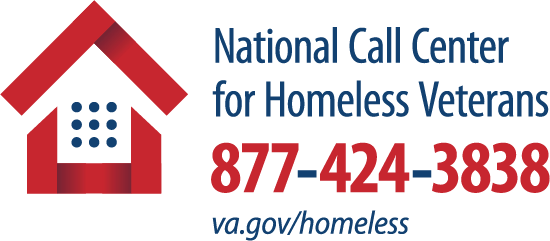SSVF Roundtable FAQs
How do Veteran families qualify to receive Supportive Services for Veteran Families (SSVF) support?
Where else can the public find more information about SSVF eligibility requirements?
What can other organizations do to help VA house homeless Veterans and their families?
How do Veteran families qualify to receive Supportive Services for Veteran Families (SSVF) support?
VA SSVF participants must meet the following three eligibility requirements:
- Be a member of a “Veteran family” as either a Veteran or as a member of a family in which the head of household—or the spouse of the head of household—is a Veteran.
- Be a “very low-income” household whose income does not exceed 50 percent of the area median income, as determined by income limits set by the Department of Housing and Urban Development (HUD).
- Be “occupying permanent housing,” whereas a very low-income Veteran family falls into one of three categories:
- Is residing in permanent housing and is at risk of becoming literally homeless but for the grantee’s assistance
- Is literally homeless and is at risk of remaining in this situation but for the grantee’s assistance and is scheduled to become a resident of permanent housing within 90 days pending the location or development of permanent housing
- Is literally homeless after exiting permanent housing within the previous 90 days and seeks other housing that meets its needs and preferences
Where else can the public find more information about SSVF eligibility requirements?
For more information, visit http://va.gov/HOMELESS/ssvf/docs/SSVF_Program_Guide_March_2015_Edition.pdf and the SSVF Program homepage at http://www.va.gov/homeless/ssvf/index.asp.
Where do funds for the SSVF program come from and what is the budget for the recent awards? How was funding distributed among grantees?
Through the award of approximately $300 million in renewal funding, SSVF will continue to fund 286 local organizations that offer crucial services, including outreach, case management and other flexible assistance, to thousands of very low-income Veteran families who are permanently housed or transitioning to permanent housing. Funding was awarded for a one- to three-year period beginning Oct. 1, 2015.
Renewal funding was only available to eligible existing grantees who submitted acceptable applications, which were due March 17, 2015. Applications were scored based on several factors, including:
- Success of grantee’s program
- Cost-effectiveness of grantee’s program
- Extent to which the grantee’s program complied with SSVF goals and requirements, including the Housing First approach
- Budgetary requirements and allocation of funds
- Equitable distribution criteria among geographic regions, which ensures that SSVF resources are provided to high-need communities, as identified by sources, such as HUD’s Annual Homeless Assessment Report, annual Point-in-Time Counts and VA Homeless Registry data
In addition to funding the strongest applications, VA also allocated surge funding to organizations in communities where there is a gap in the level of service and resources available, based on VA’s Gap Analysis report.
For more information, reference the Feb. 3, 2015, Notice of Funding Availability.
Are there other federal programs to help Veteran families obtain permanent housing? If so, what are they?
The SSVF program is the only national VA resource that specifically targets Veteran families. However, there are other programs working to help end Veteran homelessness through national housing assistance for Veterans, including the joint HUD-VA Supportive Housing (HUD-VASH) program. State and local organizations also provide resources to help house Veteran families. Learn more at http://www.va.gov/homeless/.
What can other organizations do to help VA house homeless Veterans and their families?
Community by community, significant progress is being made to end Veteran homelessness. Mayors of several cities announced they are on track to end Veteran homelessness and other local leaders across the United States are poised to make similar announcements. These successes result from close collaboration among federal, state and community partners and from significant investments to help meet this priority. Yet there is more work to be done. Here are a few ways local organizations can help end Veteran homelessness:
- Make a commitment. Set aside affordable housing units each year for Veteran families who are homeless.
- Work with VA. Connect with VA to identify Veteran families for available housing.
- Take action. Review your tenancy practices and identify ways you can lease units to Veteran families who are homeless, including by reducing “preconditions” and other barriers to housing Veterans with challenged rental histories.
- Lower the threshold. Consider renting at the Fair Market Rent rate to Veterans and their families who are homeless.
- Reduce fees. Waive security deposits for Veteran families who are homeless or partner with community nonprofit organizations to make up the difference.
- Make a pledge. Agree to house Veteran families ineligible for VA housing vouchers and supportive services.
- Spread the word. Encourage others to get involved by talking about your success in helping Veteran families exit homelessness at conferences and meetings and among your networks and peers. Serve as a conduit for VA information about ending Veteran homelessness.
Back to VA Homeless Programs Home page »
Make the Call
Dial 1-877-4AID-VET
(1-877-424-3838)
Access VA’s services for homeless and at-risk Veterans, available 24/7.
Chat Online
VA Medical Center
(VAMC) Locator
Locate Your Local
VA Medical Center Now
Veterans who are homeless or at risk of homelessness can call or visit their local VA Medical Center (VAMC) and ask for a Homeless Coordinator. Use the VA locator tool www.va.gov/directory to find your nearest VAMC and call or visit today.

















